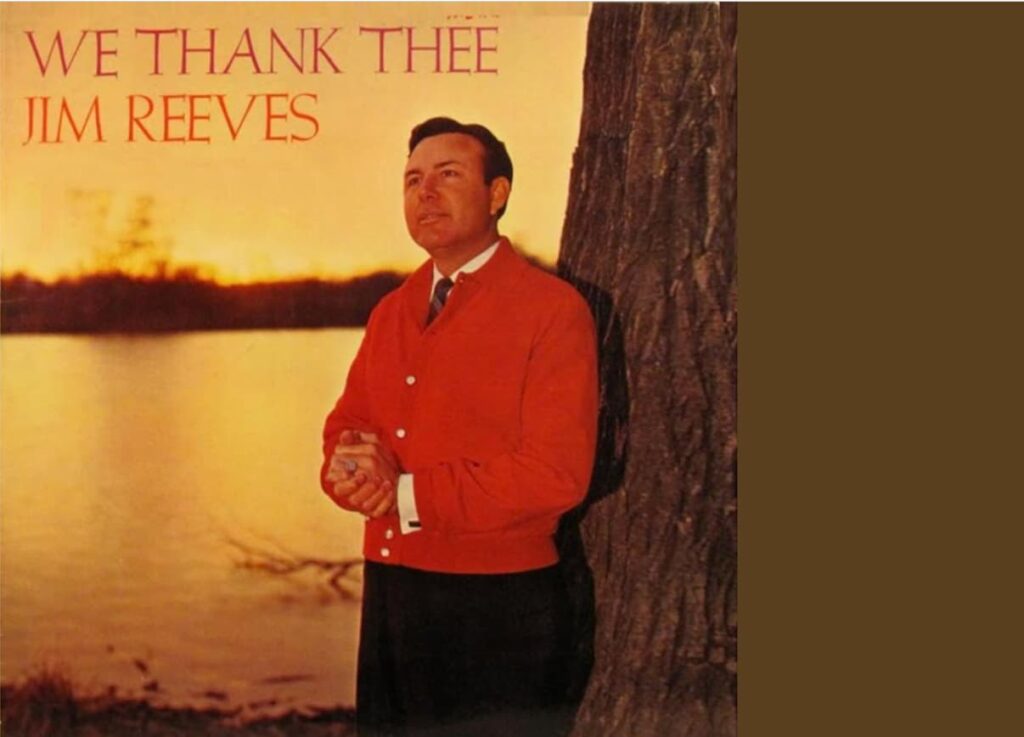
Jim Reeves – This World Is Not My Home (1962): The Gentle Baritone of an Eternal Longing
There are songs that simply entertain, and then there are hymns that gently cradle the soul, offering solace and a sense of enduring hope. “This World Is Not My Home,” as popularized by the inimitable Jim Reeves in 1962, firmly belongs to the latter. Unlike his smooth country-pop crossovers, this is a profound piece of Southern Gospel, a quiet meditation that seems to speak directly from a deep, shared well of faith that many of us hold so dear. The song itself is much older, a classic piece of Americana gospel music written by the prolific Albert Brumley in the early 20th century, but it was Reeves’ silken, reverent baritone that gave it its most indelible voice for our generation.
A Timeless Message Beyond the Charts
You won’t find this recording dominating the pop charts alongside the surging youth culture of the early 1960s, and indeed, it did not achieve the international chart-topping status of his secular hits like “Distant Drums” or “He’ll Have to Go.” Its significance, however, is not measured in weeks at Number 1, but in the number of hearts it has quietly comforted. Released on a gospel or sacred songs album, it became a staple not of the radio countdowns, but of Sunday morning services, family gatherings, and, most powerfully, moments of quiet reflection and mourning. Its true position is not on a public ledger, but within the canon of cherished hymns that define spiritual comfort across the globe. For many, a Jim Reeves gospel collection was a precious possession, and this track was often the centerpiece.
The Profound Simplicity of the Story
The lyrics of “This World Is Not My Home” express the quintessential Christian doctrine of earthly life being a mere pilgrimage. It is a dialogue between a weary soul and the promise of heaven. The narrative is simple, direct, and overwhelmingly hopeful, echoing the Book of Hebrews—the life of a believer as a journey toward a better land.
“This world is not my home, I’m just a-passing through, My treasures are laid up somewhere beyond the blue.”
The song takes on an intensely personal and moving layer when the singer speaks of reunion: “I have a loving mother just over in gloryland… I don’t expect to stop until I shake her hand.” This verse, in particular, resonates with a piercing tenderness for those of us who have lost a parent or a loved one. It turns the vast, abstract concept of heaven into a warm, familiar place, made tangible by the simple act of a loving handshake. It assures the listener that grief is temporary, and reunion is certain.
The Gentle Voice of Consolation and Detachment
The very sound of Jim Reeves on this recording—his famous “velvet” voice—is perfectly suited to the hymn’s message. There is no strained emotion, no theatrical flourish; only a deep, abiding peace. His delivery is that of a man who truly believes what he is singing, lending an almost testimonial weight to the words.
For the older generation, this song is a powerful memento mori—a gentle reminder of the ephemeral nature of life and a profound encouragement to set aside worldly anxieties and ambitions. It speaks of detachment from material possessions and the focus on eternal values, urging listeners to prioritize their spiritual journey. When listening to “This World Is Not My Home,” especially knowing the singer’s own sudden and early departure from this life, the words become incredibly poignant. His smooth resignation, his firm faith that he is merely “just a-passing through,” becomes a source of great comfort. It feels like a beautiful, unintentional benediction from a kind soul who understood the burden of this world and sought to point the way toward the ultimate, peaceful rest. It is a song that does not fear the end but embraces the promise that lies beyond.